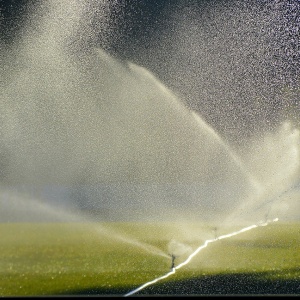
This paper surveys 195 cities in the United States and finds that the number of water conservation measures adopted in a city depend on both the climate (drier cities tend to have more water conservation measures than wetter cities) and political leanings (cities that lean towards the Democrats have more water conservation measures than Republican-leaning cities).
Abstract
Urban water supply systems in the United States are increasingly stressed as economic and population growth confront limited water resources. Demand management, through conservation and improved efficiency, has long been promoted as a practical alternative to building Promethean energy‐intensive water supply infrastructure. Some cities are making great progress at managing their demand, but study of conservation policies has been limited and often regionally focused. We present a hierarchical Bayesian analysis of a new measure of urban water conservation policy, the Vanderbilt Water Conservation Index, for 195 cities in 45 states in the contiguous United States. This study does not attempt to establish causal relationships but does observe that cities in states with arid climates tend to adopt more conservation measures. Within a state, cities with more Democratic‐leaning voting preferences and large and rapidly growing populations tend to adopt more conservation measures. Economic factors and climatic differences between cities do not correlate with the number of measures adopted, but they do correlate with the character of the measures, with arid cities favoring mandatory conservation actions and cities in states with lower real personal income favoring rebates for voluntary actions. Understanding relationships between environmental and societal factors and cities' support for water conservation measures can help planners and policy makers identify obstacles and opportunities to increase the role of conservation and efficiency in making urban water supply systems sustainable.
Plain Language Summary
As urban water supply systems confront growing populations, growing economies, and climatic stress, water conservation measures are often more effective and economical ways to assure reliable and sustainable access to water than building ever larger supply systems. We present the first analysis of a comprehensive index of urban water conservation policies for 195 cities in the contiguous United States. We find that the number of conservation measures a city adopts correlates both with environmental and societal factors and with the characteristics both of the city itself and of the state in which it is located. Cities in drier states and cities that vote for Democratic candidates in greater numbers tend to adopt more conservation policies. By identifying characteristics associated with water conservation, these results can help planners and policy makers understand how different cities face different obstacles and opportunities for adopting conservation policies.
Reference
Gilligan, J.M., Wold, C.A., Worland, S.C., Nay, J.J., Hess, D.J. and Hornberger, G.M., 2017. Urban water conservation policies in the United States. Earth's Future, Early View.
View the full open access article here. See also the Foodsource resource How do food systems affect water use?







Post a new comment »